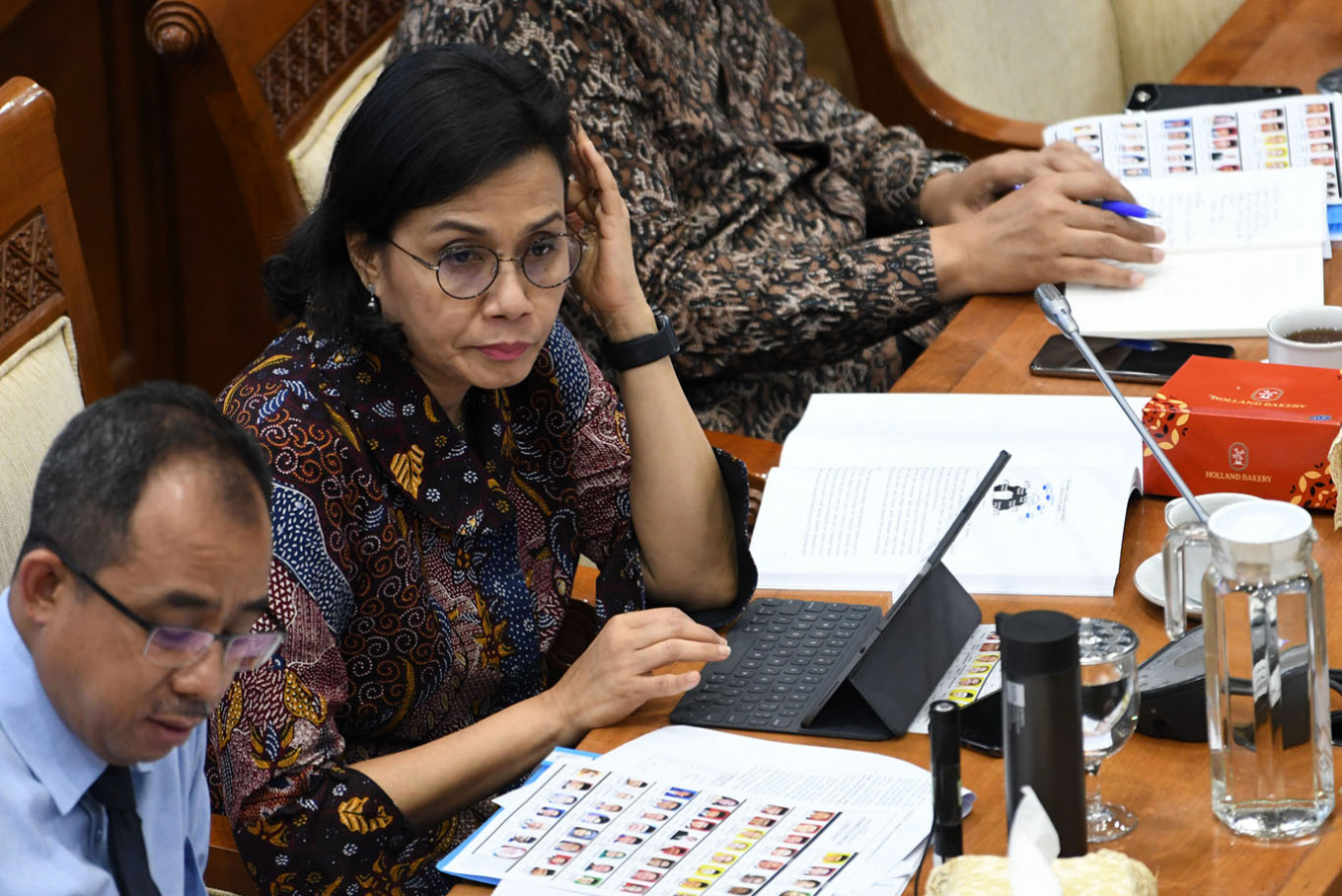Popular Reads
Top Results
Can't find what you're looking for?
View all search resultsPopular Reads
Top Results
Can't find what you're looking for?
View all search resultsIndonesia records first-quarter budget deficit of $4.9b
Indonesia’s state budget deficit fell to Rp 76.4 trillion (US$4.94 billion) in the first quarter of 2020 as revenue grew significantly from a year earlier while spending growth slowed, Finance Ministry data show.
Change text size
Gift Premium Articles
to Anyone
Indonesia’s state budget deficit fell to Rp 76.4 trillion (US$4.94 billion) in the first quarter of 2020 as revenue grew significantly from a year earlier while spending growth slowed, Finance Ministry data show.
The deficit amounts to 0.45 percent of the country’s gross domestic product (GDP). State revenue at the end of March was up 7.7 percent year-on-year (yoy) at Rp 375.9 trillion after state-owned banks paid large dividends, while state spending growth slowed by 0.1 percent yoy to Rp 452.4 trillion.
“This month’s figure did not reflect the true economic conditions as state-owned banks paid dividends early, while the cigarette industry purchased tobacco early to brace for further restrictions,” Finance Minister Sri Mulyani Indrawati said during a livestreamed press briefing on Friday. “The relatively good revenue performance compared to March last year is not driven by economic activities.”
Tax revenue contracted 2.5 percent to Rp 241.6 trillion, mainly driven by weaker oil and gas tax collection, while customs and excise revenue grew by 23.6 percent to Rp 38.3 trillion as tobacco excise increased to Rp 279.9 trillion.
“Tax revenue will face heavy pressure over the next several months as economic activities slow, fiscal stimuli take effect and commodity prices decline,” the finance minister said.
Indonesia announced in March Rp 436.1 trillion worth of fiscal stimulus to strengthen its healthcare system, provide social safety nets and prepare economic recovery programs as the COVID-19 pandemic hits the economy. The government has expected state budget deficit to widen to more than 5 percent from the initial 1.76 percent targeted in the 2020 state budget as the stimulus is rolled out.
The ministry data on Friday also revealed that nontax state revenue reached Rp 95.98 trillion by the end of March, an increase of 36.8 percent from last year’s Rp 70.16 trillion, driven by the state-owned companies’ dividends contribution.
Central government spending grew by 6.6 percent to Rp 277.9 trillion as capital and social spending increased despite a contraction of 8.8 percent in direct regional transfers to Rp 174.5 trillion.










